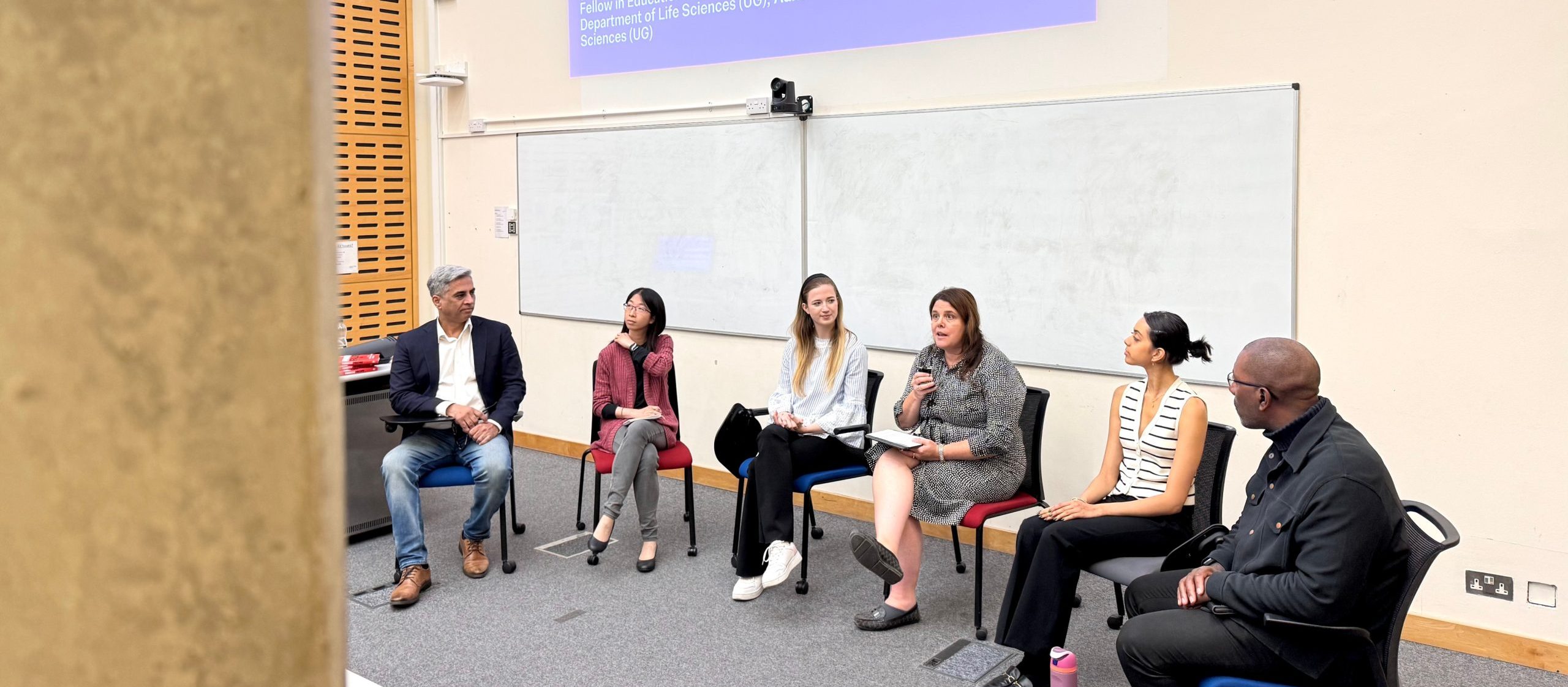 How can we design learning experiences that make failure not a setback, but a catalyst for deeper understanding? That was the central question at a recent event hosted by Imperial’s Educational Development Unit where Professor Manu Kapur shared his research on productive failure — and challenged the Imperial audience to rethink what it means to learn well.
How can we design learning experiences that make failure not a setback, but a catalyst for deeper understanding? That was the central question at a recent event hosted by Imperial’s Educational Development Unit where Professor Manu Kapur shared his research on productive failure — and challenged the Imperial audience to rethink what it means to learn well.
Professor Kapur, Director of the Singapore-ETH Centre and Professor of Learning Sciences and Higher Education at ETH Zurich, has studied how people learn by grappling with — and recovering from — mistakes. His newly published book, Productive Failure: Unlocking Deeper Learning through the Science of Failing, explores how educators can deliberately design opportunities for students to fail in low-stakes, structured ways that strengthen understanding and resilience.
The science of failing well
Opening his talk, Professor Kapur told an anecdotal story as an engineering student, when a professor assigned him a project designed not to work. “Everything I was told to try was known not to work,” he recalled. “But through that process, I came to understand the problem deeply — and only then could I solve it.” It took him years, he admitted, to appreciate the lesson.
That moment, he said, became the seed of his research into productive failure — the idea that when learners engage with challenging problems and fail in the right way, their subsequent learning becomes far more durable and transferable. The failure, prepares the mind to learn.
Drawing on cognitive science, he explained that novices don’t see problems the same way experts do: “Seeing is not just a perceptual exercise — it’s a cognitive one. We see with the knowledge we have.” Before students can grasp expert explanations, they must first be helped to see what they don’t yet know. That’s where failure comes in: it activates prior knowledge, exposes gaps, and sparks curiosity.
Designing for difficulty
Kapur’s model involves a two-phase approach: first, students tackle complex, unsolved problems that prompt exploration and (often) failure; then, expert instruction follows to help them make sense of their attempts. Far from a “sink or swim” exercise, this approach is carefully designed to make failure safe and meaningful. Tasks are calibrated to be intuitively accessible yet challenging, admitting multiple representations and solution attempts so students generate diverse pathways to the target knowledge. Empirical evidence he cited shows that while traditional direct instruction and productive failure perform equally well on basic recall, students exposed to productive failure significantly outperform peers when asked to transfer concepts to novel problems — a reliable marker of deeper learning.
A panel of perspectives
Following the talk, a panel of Imperial colleagues and students – Dr Tiffany Chiu, Dr Wayne Mitchell, Professor Camille Kandiko Howson, and students Aditi Mehta and Sophie- Marie Pasewald – joined Professor Kapur to unpack how these ideas resonate within Imperial’s learning culture.
Dr Chiu reflected on how productive failure reframes the language of learning. “Putting the word productive before failure changes everything,” she said. “It becomes something we can scaffold, contextualise, and even celebrate.”
Dr Mitchell linked the concept to laboratory teaching, where experiments rarely go as planned: “I tell my students, I don’t care about your results – I care about the process. You only really fail if you stop trying.”
The student panellists offered a candid view from the learner’s side. Sophie-Marie invited the idea of productive failure and noted that for many high-achieving students, failing has always been a negative: “To get here, you basically couldn’t fail at school. So, learning to see struggle as part of progress takes time.” Aditi added that working through difficult tasks together with peers often turns frustration into insight: “Sometimes my pathway doesn’t work, someone else’s doesn’t either, but together we find the right idea.”
Balancing challenge and care
The panel also discussed the fine line between productive and unproductive failure. Dr Chiu emphasised the importance of mental wellbeing: “We want students to experience challenge, but within boundaries that protect wellbeing.”
Professor Kapur agreed, adding that teachers must set clear expectations: learners need to know the goal is exploration, not immediate success. “If you don’t do that,” he said, “students think they’re supposed to get it right – and that defeats the point.”
Turning reflection into action
As the discussion closed, participants considered how Imperial might embed productive failure more intentionally – from curriculum design to staff development. For Professor Kapur, the takeaway was simple: “If failure isn’t built into our systems, we’re under-optimising learning. Failure shouldn’t be a bug in education – it should be a feature.”
The evening ended with lively conversation over refreshments, a few signed copies of Productive Failure, and plenty of ideas about how Imperial could make space for students – and staff – to learn by doing, stumbling, and trying again.